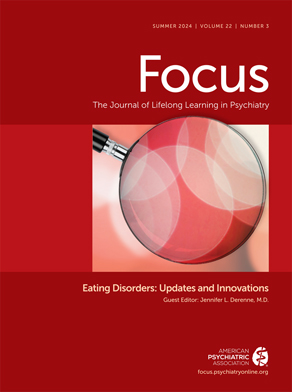6.
Drugs: Once the diagnosis is established, the dose and duration of treatment have been optimized, adherence assured and nonpharmacologic approaches maximized, the choices are to switch medications or augment/combine. Most clinicians favor switching to another antidepressant if response is minimal and/or side effects problematic. Overall, only about 1 out of 4 patients switched to a second antidepressant after nonresponse or inability to tolerate an initial trial of a SSRI will remit to another monotherapy, whether it be with another SSRI, a dual reuptake inhibitor (e.g., venlafaxine) or a catecholinergic agent (e.g., bupropion).
In the absence of compelling data to guide treatment decisions, many clinicians use side effects and/or comorbid conditions to help select the next agent. Side effect considerations need to be individualized. For example, an adolescent male with MDD and premature ejaculation may be very adherent to a medication which also helps him delay ejaculation; an SSRI or SNRI would be good choices. On the other hand, an older male may prefer depression to the inability to ejaculate; for him, bupropion might be an ideal choice. Similarly, mirtazapine would be a poor choice for a woman who fears weight gain or somnolence, but an ideal choice for a cachectic cancer or AIDS patient with MDD. A co-occurring eating disorder or pre-menstrual worsening suggests switching to another SSRI; anxiety disorders suggest an SSRI or SNRI, pain an SNRI (duloxetine), smoking, attention-deficit disorder or obesity—bupropion.
Most clinicians favour
augmenting (adding a non-antidepressant medication) or
combining (adding another antidepressant) for patients who have had a partial or full response but nonremission to an initial monotherapy, especially where side effects have not been substantial. Although RCTs have not found one augmentation strategy to be preferable to others, some clinicians favor augmenting with lithium or lamotrigine where there is a bipolar phenotype (e.g., family history, early onset, psychotic or atypical features, irritability or agitation); thyroid for patients with borderline high thyroid-stimulating hormone (TSH) or symptoms consistent with hypothyroidism; estrogen for peri or post-menopausal women; stimulants for physically ill, unmotivated or lethargic patients; and buspirone for anxious patients. Atypical antipsychotics are increasingly being used to augment antidepressants for a range of depressed patients including those with bipolar spectrum disorders, MDD with psychotic features, and those with psychomotor agitation. Combining SSRIs with bupropion may be the most widely used combination strategy (
4), although SSRIs plus SNRIs and SNRIs plus mirtazapine also have their proponents.

